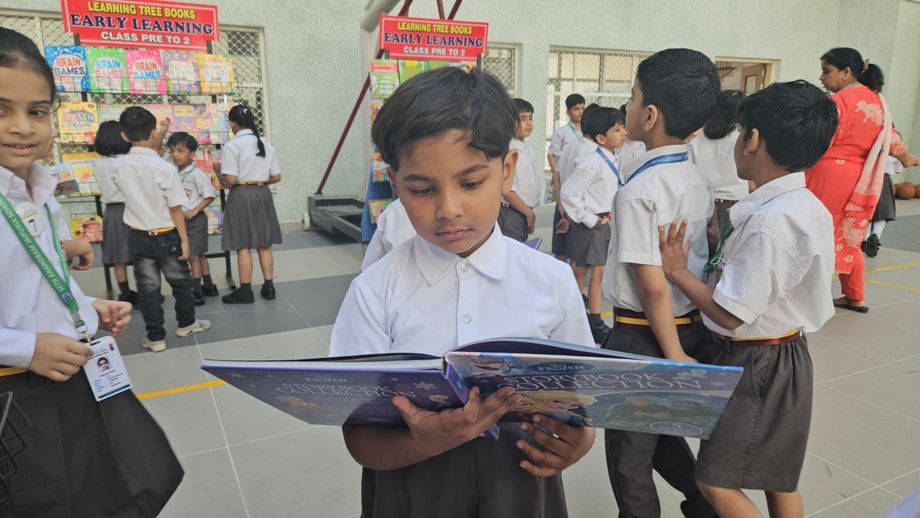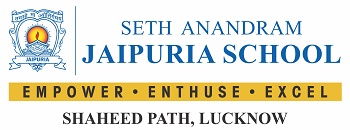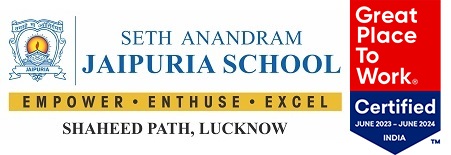Schools Welcome ‘Bharat’ in Textbooks, Await NCERT Directives
 In a move that has sparked nationwide discussion and debate, media reports suggest that a committee constituted by the National Council of Educational Research and Training (NCERT) in India has proposed the replacement of the term ‘India’ with ‘Bharat’ in school textbooks. While NCERT has maintained that it is premature to comment on the issue, schools across the country are already embracing this development with open arms.
In a move that has sparked nationwide discussion and debate, media reports suggest that a committee constituted by the National Council of Educational Research and Training (NCERT) in India has proposed the replacement of the term ‘India’ with ‘Bharat’ in school textbooks. While NCERT has maintained that it is premature to comment on the issue, schools across the country are already embracing this development with open arms.
Schools see this shift, if adopted, as an opportunity to provide a more comprehensive understanding of the nation’s history, culture, and linguistic diversity. By using the term ‘Bharat,’ educators aim to foster a deeper connection between students and their heritage. This change is not just about semantics; it represents a significant shift in the way Indian students will perceive their country, school administrators say.
“Education is not just about imparting knowledge; it’s also about instilling values and a deep love for one’s country. This textbook alteration will serve as a stepping stone towards nurturing patriotism and preserving our unique heritage,” Alka Kapur, Principal of Modern Public School, Shalimar Bagh told Moneycontrol.
While some may argue that ‘India’ is more internationally recognised and has historical significance, proponents of ‘Bharat’ believe that it’s essential to have a broader perspective. By using ‘Bharat’ in textbooks, schools aim to instil a sense of pride in the rich tapestry of India’s cultural history, languages, and traditions.
Though the formal recognition of the move is awaited, educationists are already mulling what the execution would look like.
Rohan Parikh, Chairperson of The Green Acres Academy suggested textbooks should incorporate both ‘India’ and ‘Bharat’ when referring to the country. “It is a practice similar to that in various nations like Japan (Nippon), Korea (Hanguk) and Russia (Rossiya), which use different names externally and internally. This approach aims to provide a comprehensive understanding of our nation’s nomenclature,” Parikh said.
However, he said providing educational context and teacher training is crucial to help students understand the historical, cultural, and constitutional aspects of this change, similar to how other nations introduce students to different names for their countries.
In 2019, the country formerly known as the Former Yugoslav Republic of Macedonia officially changed its name to the Republic of North Macedonia. Besides, in 2018, the Kingdom of Swaziland announced that it would change its official name to the Kingdom of Eswatini.
For some, it is not a matter of changing India to Bharat in school textbooks alone. The implications will be much greater and changes will have to be initiated at many levels.
“Starting with The Constitution of India and the Preamble, which is there at the start of every NCERT textbook. I’m reminded of Shakespeare’s famous words: What’s in a name? That which we call a rose by any other name would smell just as sweet,” said Poonam Kochitty, Principal of Seth Anandram Jaipuria School, Lucknow, adding that, “Bharat will be just as dear a motherland as India is.”
Published on:- October 27, 2023
Published By:- Money Control
Link:- https://www.moneycontrol.com/news/india/schools-welcome-bharat-in-textbooks-await-ncert-directives-11610651.html




















